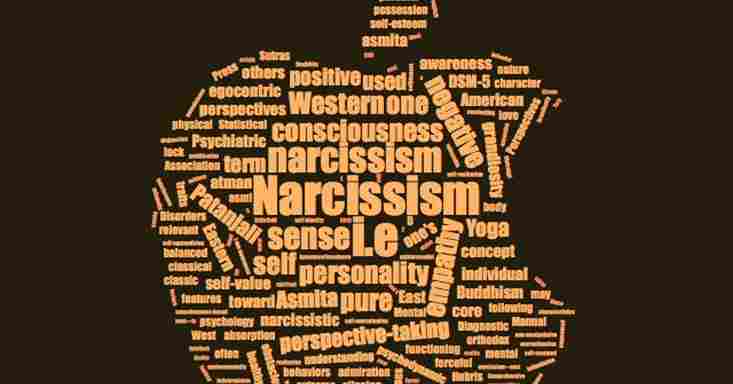Narcissistic Personality Disorder is a mental disorder that is characterized by a long-term pattern of grandiose thoughts, feelings, and behaviors. People with this disorder often have an inflated sense of their abilities and are preoccupied with fantasies about their greatness. They may also believe that they are special or unique and deserve preferential treatment. In addition, people with a narcissistic personality disorder often lack empathy for others and can be very insensitive.
Contents
Defining DSM-5 And Narcissism
 DSM-5 means the Diagnostic and Statistical Manual of Mental Disorders. It’s a binder full of mental disorders and their diagnostic criteria. Narcissistic Personality Disorder (NPD) is in Section II, “Personality Disorders.”
DSM-5 means the Diagnostic and Statistical Manual of Mental Disorders. It’s a binder full of mental disorders and their diagnostic criteria. Narcissistic Personality Disorder (NPD) is in Section II, “Personality Disorders.”
A personality disorder characterized by an inflated sense of self-importance and a need for admiration. Individuals with this disorder display grandiose behaviors, such as bragging or exaggerating their achievements. They also have a strong sense of entitlement and require constant attention and positive reinforcement from others.
For example, individuals with narcissistic personality disorder are often successful and have high self-esteem. They are also usually charming and charismatic.
Is Narcissism in the DSM-5?
Most experts believe that there are at least two subtypes of NPD: grandiose or open narcissism, and frail or covert narcissism. However, none of the DSM-5’s or ICD-11’s subsets for NPD have been specified.
That doesn’t mean, however, that narcissism isn’t in the DSM-5 far from it. Many experts believe that narcissistic personality disorder (NPD) is one of the most underdiagnosed mental disorders. The reason for this is two-fold: first because symptoms of NPD can be difficult to spot; and second, because people with NPD are often reluctant to seek help.
What Are The Criteria For Narcissism In DSM-5?
The criteria for narcissism in DSM-5 are as follows:
- A grandiose sense of self-importance
- A preoccupation with fantasies of unlimited success, power, or brilliance
- A belief that one is special and unique.
- A need for excessive admiration.
- A sense of entitlement
- A willingness to exploit others for personal gain
- A lack of empathy
- An arrogant or haughty attitude.
If you or someone you know meets these criteria, it is important to seek professional help. Narcissistic personality disorder can be a difficult condition to live with, but treatment is available and can be effective. With the help of a mental health professional, it is possible to learn how to manage narcissistic personality disorder and lead a happy and fulfilling life.
How To Diagnose?

A professional therapist can assess your symptoms and life history to determine if you suffer from narcissism. To be diagnosed with narcissistic personality disorder:
- You must have a long-standing pattern of grandiose thoughts and behaviors.
- A need for admiration and a lack of empathy for others.
- Difficulty maintaining healthy, long-term relationships.
A narcissistic personality disorder is not a personal choice of behaviors- it’s an actual mental health diagnosis that can only be given by a qualified professional.
If you think you may have a narcissistic personality disorder, consider seeking help from a mental health professional.
Who Can Diagnose Narcissism From DSM-5?
Trained mental health professionals, such as psychiatrists, psychologists, and clinical social workers, can diagnose narcissism based on the individual’s self-reported, symptoms and behaviors. The mental health professional will also consider how long the symptoms have been present and how severe they are.
Psychiatrists often use the Diagnostic and Statistical Manual of Mental Disorders (DSM-V) to help make a diagnosis. The DSM is published by the American Psychiatric Association and provides a common language and criteria for the classification of mental disorders. A narcissistic personality disorder is listed in the “Personality Disorders” section of the DSM-V.
What To Do After Diagnosis?
After diagnosis, it is important to begin working with a therapist that specializes in narcissistic personality disorder. Many individuals with this disorder have a difficult time accepting help, but it is essential to work on improving self-esteem and learning how to function in healthier relationships. In therapy, you will likely explore the origins of your narcissism and work to build more realistic expectations for yourself.
Medication
It may be prescribed to treat underlying mental health conditions such as depression or anxiety. Medication which is most commonly used to treat these conditions are:
- Serotonin reuptake inhibitors (SSRIs)
- Selective serotonin and norepinephrine reuptake inhibitors (SNRIs)
- Tricyclic antidepressants (TCAs)
However, it’s important to note that medication alone is not a cure for narcissism and must be combined with therapy for the best results.
Psychotherapy
Narcissistic personality disorder can be centered around talk therapy or psychotherapy. This is a process where you talk with a therapist to help address the underlying issues that may be causing narcissistic behaviors.
CBT is a kind of psychotherapy that can help with narcissism. CBT can help people with NPD learn how to better deal with their emotions and thoughts. Family or group therapy may be recommended to help them learn healthy communication and coping skills.
Lifestyle Changes
There are various lifestyle changes to treat narcissism. Consider making these changes to improve quality of life. Some of these lifestyle changes include:
- Focus on your goals.
- More flexible and adaptable
- Practice being assertive in a respectful way
- Avoid criticism
- Learn to handle disappointment and frustration
- Be empathetic
- Spend time with supportive people
The severity of narcissistic personality disorder can range from mild to severe. People with mild narcissism may function well in their jobs and relationships, while those with severe narcissism may have difficulty maintaining any kind of relationship and suffer professionally as well.
Conclusion
Narcissism is a very complicated mental disorder, making it hard to give an accurate diagnosis. It is important to remember that not all people who suffer from this disorder will have all of the symptoms and some may only have a few.
Narcissistic Personality Disorder is a serious mental disorder that often has dramatic negative consequences for sufferers. If you think you or someone close to you may have narcissism, don’t hesitate to reach out for assistance.
For more tips and guidance, you can reach out to Therapy Mantra. Our team of professional counselors will be more than happy to help you on your journey to recovery. Contact us today to learn more about our services. You can also book an online therapy session or download our free Android or iOS app.



